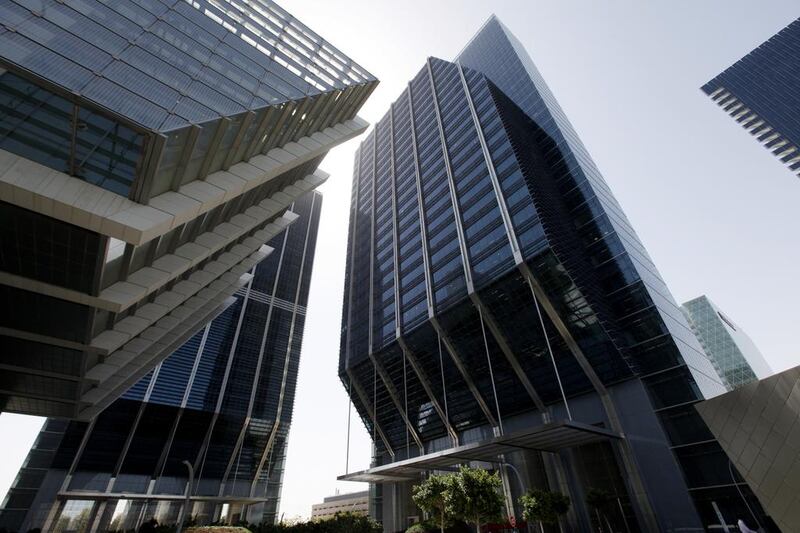Abu Dhabi Global Market, the UAE capital's proposed financial centre, has thrown its plans open for public consultation in the build up to its launch.
The consultation documents – which will form the basis of legislation paving the way for the ADGM's formal opening – reveal that the market will be based directly on English common law, but influenced by the legal systems applied in two of the world's biggest financial centres: Singapore and Hong Kong.
The documents also contain detailed proposals for how ADGM will structure company law, insolvency practice, employment and property legislation, as well as its own operating regulations.
Ahmed Al Sayegh, the chairman on the ADGM, said: "A robust legal system based on a legislative framework that meets international financial services standards is at the core of ADGM's value proposition."
The consultation process has been under way for some weeks in private discussion with some of the leading financial institutions in the world, in the form of a 16-member panel of banks and investment groups.
Mr Al Sayegh said: "The legislation has been drafted with advice and input from major international financial institutions and industry bodies in the UAE and major capital markets around the world. We look forward to receiving comments and input from the public before enacting this legislation and receiving our first licence applications later this year."
The draft legislation and consultation documents are published on the ADGM website in the form of 1,000 pages of recommendations, questions and answers. The public has until February 5 to read the documents and comment on the proposals.
"As we ramp up our preparations, we will continue our collaboration and consultation approach which we believe is crucial given the many changes the global financial services sector is experiencing,"said Mr Al Sayegh.
"ADGM will provide a robust regulatory framework designed to support a dynamic and competitive international financial centre that is both risk-focused and responsive to changing market needs and requirements."
The proposed legislation mainly covers the non-financial services aspects of the ADGM's structure. A similar consultation process involving financial services firms is expected to be undertaken soon.
The draft legislation will reassure international financial firms that ADGM intends to adopt English common law as its basic legal principle.
"ADGM has decided to legislate for English common law to apply in, and form part of the law of, the ADGM," the consultation paper on basic law says.
"English common law, as it stands from time to time, will therefore govern matters such as contracts, tort, trusts, equitable remedies, unjust enrichment, damages, conflicts of laws, security, and personal property."
In addition, certain English statutes that modify aspects of the common law (such as UK contract law) or that create a statutory regime previously governed by common law (such UK partnership law) will also be applied in ADGM.
The ADGM approach is in contrast with other kinds of legal approaches used by other financial centres, namely a codified civil law system such as the Napoleonic codes, or a hybrid system which codifies common law by way of new legislation.
ADGM has decided to follow a model similar to that in other common law jurisdictions, for example, Hong Kong and Singapore, by applying English common law directly, rather than codifying it, with respect to certain areas of the legislation.
The chosen strategy of ADGM in this regard will be implemented by way of regulations which are modelled on the corresponding instruments in Hong Kong and Singapore.
One lawyer who asked not to be named said: "This is a welcome exercise in public consultation over one of the most important projects on Abu Dhabi's horizon today. The way to build a global market is with the participation and expertise of those institutions that will be part of it, and the views of the public who will be using it."
fkane@thenational.ae
Follow The National's Business section on Twitter
Abu Dhabi’s proposed financial centre reveals its law plans
The market will be based directly on English common law, but influenced by the legal systems applied in Singapore and Hong Kong.

Editor's picks
More from the national





